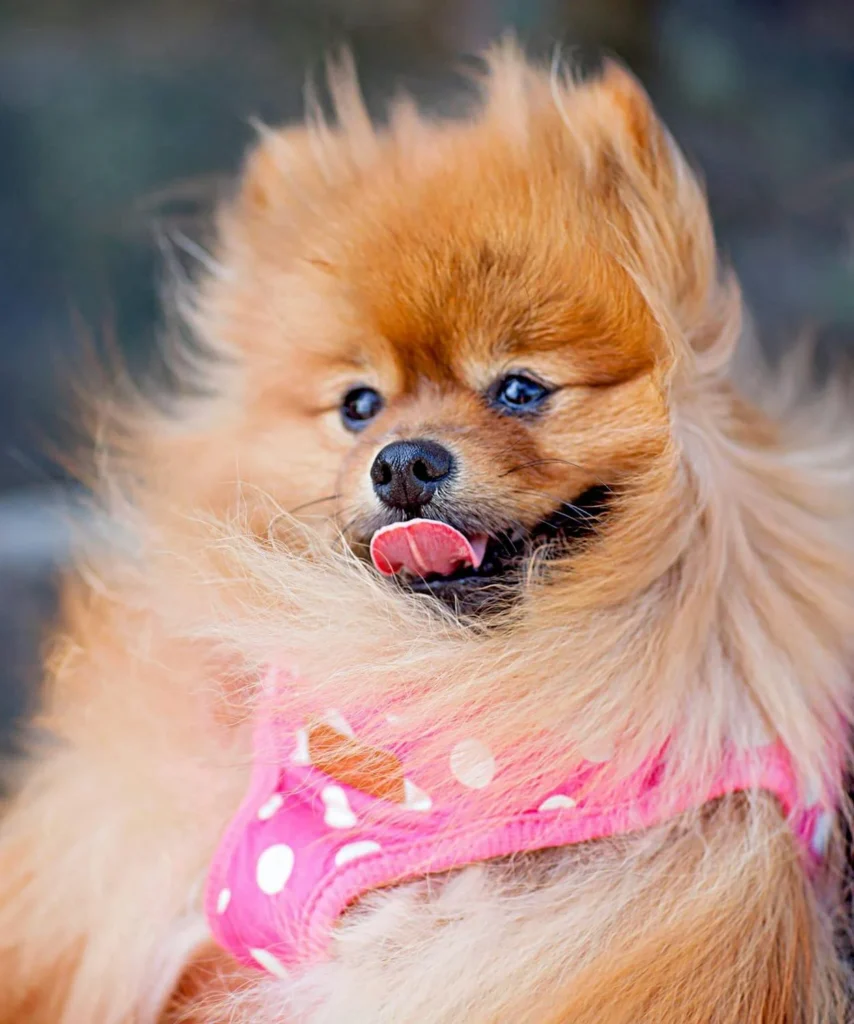Welcome, Corgi enthusiasts and curious dog lovers! 🎉 Have you ever found yourself wondering why your adorable Corgi seems to have an opinion on everything, vocally expressing themselves at every turn? Well, you’re in for a treat! In this comprehensive guide, we’ll explore the fascinating world of Corgi vocalizations, from their ancestral roots to practical tips for managing those endless conversations. So, grab a cup of tea ☕, settle in with your furry chatterbox, and let’s dive into the wonderful world of Corgi talk!
Understanding Corgi Vocalizations: The Basics 📚
Before we delve into the specifics of why Corgis are so talkative, let’s take a moment to appreciate the vocal repertoire of these charming little dogs. Corgis are known for their range of vocalizations, including:
- Barking 🗣️
- Whining 😢
- Growling 😠
- Howling 🐺
- “Talking” or grumbling 🎭
Each of these sounds serves a different purpose in the Corgi’s communication toolkit. Today, we’re focusing on their overall talkative nature, which often combines various vocalizations to create a unique “Corgi language.”

The Ancestral Call: Why Are Corgis So Vocal? 🧬
To understand why Corgis are such chatterboxes, we need to look back at their history and breeding purpose. Corgis were originally bred as herding dogs in Wales, where their vocalizations served several important functions:
- Herding cattle: Their barks and nips helped control and direct cattle.
- Alerting shepherds: Vocal cues warned of potential dangers or issues with the herd.
- Communication over distances: In open fields, vocalizations helped Corgis communicate with their human partners.
- Deterring predators: A vocal Corgi could help scare away threats to the herd.
While our modern Corgis might not be herding cattle anymore, these instincts are still deeply ingrained in their genes, manifesting as a tendency to be vocal in various situations.
Corgi Vocalizations vs. Other Breeds: A Chatty Comparison 🎭
How do Corgis stack up against other breeds when it comes to talkativeness? Let’s take a look:
| Breed | Vocalization Tendency | Common Vocalizations | Typical Triggers |
|---|---|---|---|
| Corgi | High | Barks, grumbles, howls | Excitement, alerting, seeking attention |
| Beagle | High | Howls, bays | Scents, other dogs |
| Husky | Very High | Howls, “talks” | Boredom, communication |
| Chihuahua | Moderate to High | Yaps, whines | Anxiety, territorial behavior |
| Basset Hound | Moderate | Howls, bays | Loneliness, other dogs |
As we can see, Corgis are indeed among the more vocal breeds, known for their varied and frequent vocalizations.
The Corgi’s Vocal Journey: From Puppy to Senior 👶➡️👴
A Corgi’s vocalization habits can change as they age. Here’s what you might expect at different life stages:
| Age | Vocalization Tendency | Notable Changes |
|---|---|---|
| 8-16 weeks | Moderate | Learning to vocalize, experimenting with sounds |
| 4-6 months | High | Testing boundaries, more frequent vocalizations |
| 6-12 months | Very High | “Teenage” phase, may be extra vocal |
| 1-3 years | High | Settling into adult patterns |
| 4-7 years | Moderate to High | Established vocalization habits |
| 8+ years | Moderate | May decrease due to age, but varies |
Remember, these are general guidelines. Individual Corgis may develop different vocalization habits based on their personality, environment, and training.
Types of Corgi “Talk”: Decoding Their Language 🗨️
Corgis have a rich vocabulary of sounds. Let’s explore the different types of vocalizations you might hear from your furry friend:
- The Alert Bark: Sharp, attention-grabbing barks to alert you to something unusual.
- The Demand Bark: Insistent barking when they want something (food, play, attention).
- The Grumble: A low, mumbling sound often made when they’re content or slightly annoyed.
- The Whine: A high-pitched sound indicating anxiety, excitement, or desire for something.
- The Howl: A prolonged, melodious sound often in response to high-pitched noises.
- The “Talk”: A series of varied vocalizations that sound almost like human speech.
Triggers for Corgi Chatter: What Gets Them Talking? 🚀
Corgis may become vocal for various reasons. Here are some common triggers:
- Excitement: Seeing their favorite person or anticipating a walk.
- Alerting: Notifying you of potential “threats” (like the mailman or a squirrel).
- Attention-seeking: When they want food, play, or cuddles.
- Boredom: Insufficient mental or physical stimulation.
- Anxiety: Separation anxiety or general stress.
- Pain or discomfort: Vocalizations might indicate they’re not feeling well.
- Responding to sounds: TVs, doorbells, or other animals might trigger a response.
- Dreaming: Yes, Corgis can vocalize in their sleep!
The Pros and Cons of a Talkative Corgi 📊
While a chatty Corgi can be endearing, it’s not always convenient. Let’s weigh the upsides and downsides:
Pros of a Talkative Corgi 👍
- Alerting: Your Corgi’s vocalizations can warn you of potential dangers or unusual occurrences.
- Communication: Their “talk” helps you understand their needs and emotions better.
- Entertainment: A talking Corgi can be incredibly amusing and endearing.
- Emotional expression: Vocalizations allow your Corgi to express a range of feelings.
- Bonding: Responding to your Corgi’s vocalizations can strengthen your relationship.
Cons of a Talkative Corgi 👎
- Noise complaints: Frequent vocalizations might not be appreciated by neighbors.
- Sleep disruption: A chatty Corgi might interrupt your rest.
- Attention-seeking behavior: If rewarded, excessive vocalization can become manipulative.
- Stress indicator: Sometimes, too much “talk” might signal anxiety or unhappiness.
- Training challenges: A very vocal Corgi might be harder to train in certain situations.
Managing Corgi Vocalizations: Tips and Tricks 💡
While talking is natural for Corgis, there might be times when you need to manage or reduce it. Here are some strategies:
- Identify triggers: Understanding what causes your Corgi to vocalize is the first step in managing it.
- Positive reinforcement: Reward quiet behavior to encourage it.
- Provide mental stimulation: A tired Corgi is less likely to vocalize out of boredom.
- Address anxiety: If stress is the cause, work on building your Corgi’s confidence.
- Consistent training: Teach commands like “quiet” using positive reinforcement.
- Ignore attention-seeking vocalizations: Don’t reinforce the behavior by responding to it.
- Regular exercise: A well-exercised Corgi is often a quieter Corgi.
- Check for health issues: If vocalizations are sudden or excessive, consult your vet.
Corgi Talk and Your Neighbors: Keeping the Peace 🏘️
Living with a chatty Corgi in close quarters can sometimes lead to neighborly tensions. Here are some tips to maintain good relationships:
- Communicate: Let your neighbors know you’re aware of the issue and working on it.
- Manage timing: Try to minimize vocalizations during typically quiet hours.
- Soundproofing: Consider some basic soundproofing for your home if vocalizations are frequent.
- Training: Invest time in teaching your Corgi when it’s appropriate to be vocal.
- Compromise: Be open to feedback and willing to find solutions that work for everyone.
The Long-Term Outlook: Living with a Talkative Corgi 🔮
As your Corgi ages, their vocalization habits may change. Here’s what you might expect in the long run:
Adult Corgis (3-7 years)
- Established vocalization patterns
- May “talk” in response to specific, known triggers
- Generally more controllable through training and routine
Senior Corgis (8+ years)
- Possibly reduced vocalizations due to decreased energy
- May develop new triggers due to age-related changes (e.g., hearing loss)
- Might need more patience and understanding if cognitive decline affects behavior
Remember, regular vet check-ups are crucial to ensure any changes in vocalization aren’t due to health issues.
Fascinating Facts About Corgi Talk 🤓
Did you know…
- The word “Corgi” comes from Welsh words meaning “dwarf dog,” but their voices are anything but small! 🏴
- Some Corgis have been known to mimic human speech patterns, leading to viral videos of “talking” Corgis! 🎥
- Corgis have been favored by royalty, including Queen Elizabeth II. Perhaps they appreciate a dog that can hold a conversation! 👑
- In Welsh folklore, Corgis were believed to be enchanted dogs ridden by fairies, and their vocalizations were thought to be magical! 🧚♂️
- The shape of a Corgi’s head and throat influences their vocalizations, giving each Corgi a unique “voice”!
FAQs: Your Burning Questions About Talkative Corgis Answered 🔥
Q: Are all Corgis equally talkative?
A: While Corgis are generally known for being vocal, individual personalities can vary. Some may be more talkative than others.
Q: Can I train my Corgi to be less vocal?
A: Yes, with consistent positive reinforcement training, you can teach your Corgi when it’s appropriate to vocalize and when to be quiet.
Q: Why does my Corgi “talk back” when I speak to them?
A: Many Corgis are responsive to human speech and may vocalize in return as a form of communication or attention-seeking behavior.
Q: Is excessive vocalization a sign of a problem in Corgis?
A: While some vocalization is normal, sudden or excessive increases could indicate stress, anxiety, or health issues and should be checked by a vet.
Q: Do Pembroke Welsh Corgis and Cardigan Welsh Corgis vocalize differently?
A: While both breeds are known for being vocal, some owners report that Cardigans may be slightly less talkative than Pembrokes, but this can vary widely among individuals.
Wrapping Up: Embracing Your Corgi’s Chatty Charm 🌈
And there you have it – everything you ever wanted to know about why Corgis are so talkative (and then some)! 🎊 From their herding heritage to their modern-day conversations, Corgi vocalizations are a fascinating and often endearing aspect of these beloved dogs’ personalities.
Remember, a talkative Corgi is simply being true to their nature. While it can sometimes be challenging, understanding the reasons behind their chatter can help you appreciate and manage this behavior more effectively.
So the next time your Corgi strikes up a conversation, whether it’s a series of expressive barks or a long, grumbly monologue, you’ll have a deeper appreciation for their communicative nature. Who knows? You might even find yourself having full-blown conversations with your furry friend!
Here’s to many years of joyful (and chatty) companionship with your talkative Corgi! May your home be filled with the delightful sounds of Corgi conversation for years to come. 🐾🗣️💖



